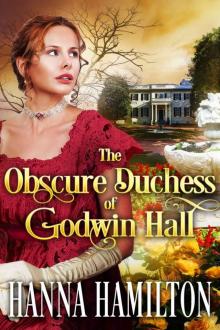 Before I Was Yours, My Earl: A Historical Regency Romance Novel
Before I Was Yours, My Earl: A Historical Regency Romance Novel The Stolen Diadem of a Castaway Lady: A Historical Regency Romance Novel
The Stolen Diadem of a Castaway Lady: A Historical Regency Romance Novel The Earl That Overruled My Destiny
The Earl That Overruled My Destiny Annabelle Enchants the Rejected Earl: A Historical Regency Romance Novel
Annabelle Enchants the Rejected Earl: A Historical Regency Romance Novel Diana Adores the Puzzled Duke_A Historical Regency Romance Novel
Diana Adores the Puzzled Duke_A Historical Regency Romance Novel The Duke of My Heart (Regency Romance)
The Duke of My Heart (Regency Romance) A Pure Lady for the Broken Duke
A Pure Lady for the Broken Duke The Obscure Duchess of Godwin Hall_A Historical Regency Romance Novel
The Obscure Duchess of Godwin Hall_A Historical Regency Romance Novel A Charming Cavalryman for Clementine_A Historical Romance Novel Based on True Events
A Charming Cavalryman for Clementine_A Historical Romance Novel Based on True Events The Governess Who Stole My Heart: A Historical Regency Romance Novel
The Governess Who Stole My Heart: A Historical Regency Romance Novel A Dashing Duke for Emily_A Historical Regency Romance Novel
A Dashing Duke for Emily_A Historical Regency Romance Novel A Dashing Duke for Emily
A Dashing Duke for Emily A Pure Lady for the Broken Duke_A Historical Regency Romance Novel
A Pure Lady for the Broken Duke_A Historical Regency Romance Novel The Scandal of the Deceived Duchess: A Historical Regency Romance Novel
The Scandal of the Deceived Duchess: A Historical Regency Romance Novel The Legend of the Betrayed Duchess_A Historical Regency Romance Novel
The Legend of the Betrayed Duchess_A Historical Regency Romance Novel The Scandalous Saga of the White Lady: A Historical Regency Romance Novel
The Scandalous Saga of the White Lady: A Historical Regency Romance Novel